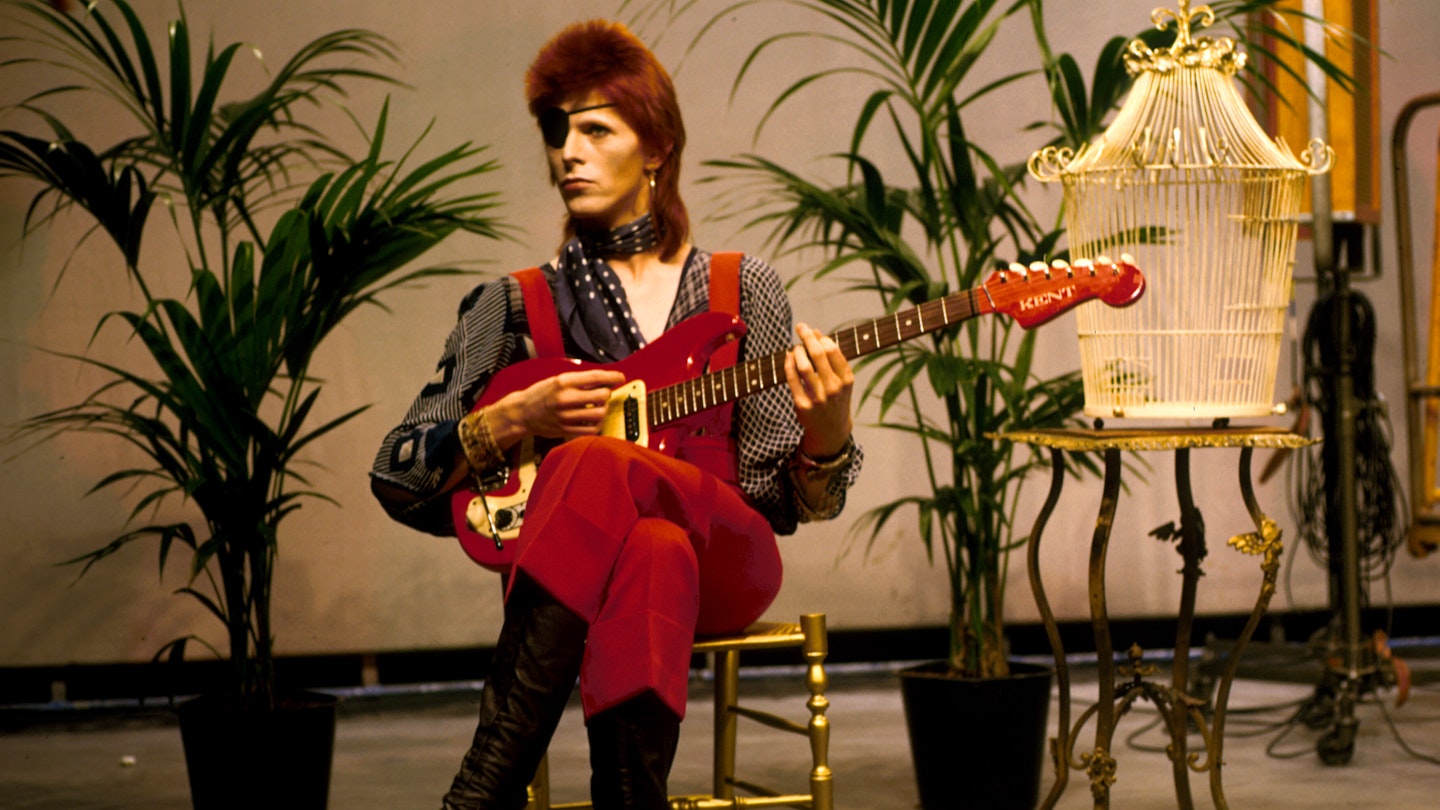Legend, icon, pioneer, genius – words so overused, but not in the case of David Bowie. We’re still reeling from the death of the London boy who altered our sound and vision, took the counter out of culture and challenged gender rules. Here, five Grazia contributors explore Bowie’s unique impact.
'Get Ready For A Bowie Revival' Rebecca Lowthorpe says Bowie's influence over fashion will live on
![[Rex]](https://images.bauerhosting.com/legacy/lifestyle-legacy/4e/2e195/088e5/3a2ba/80f3a/542a3/5c84a/rexfeatures_1887100m_700x1050.jpg?auto=format&w=1440&q=80)
'Fashion prophet, shape-shifter, gender-bender, artist, icon. David Bowie was the ultimate fashion hero. His influence on fashion is incalculable, across the board and through every generation. The media saturation last week is proof of that. From overt Bowie-isms like Jean Paul Gaultier’s spring/summer 2013 asymmetric spangled catsuits and Hedi Slimane’s glam rock star- studded boots at Saint Laurent to Gucci’s Alessandro Michele putting his men in floral suits and his women in giant pussy- bow blouses and giant sparkly shades. But you’ve seen all that and you’ve read the eulogies. The big question is how his influence will impact fashion in the future.
'Let’s look at the potential for Bowiemania in an industry that thrives on ch ch ch changes... Which designer will be first to dig out the archives of Kansai Yamamoto, the who wardrobed Bowie in that balloon-legged jumpsuit, as worn on the 1973 Aladdin Sane tour? Who’s been googling Freddie Burretti, the designer who collaborated with Bowie on the skinny pale blue suit for his Life On Mars video? Will there be a full scale reinvestigation of glam rock? Naturally, fashion’s most innovative designers will dig deeper, look for the less obvious reference points: we may see Op Art spots, courtesy of Victor Vasarely’s blue-and-green dot artwork on the album Space Oddity. It’s a given that The Thin White Duke look will be everywhere (white shirt, black waistcoat and trousers) and that gender-blurring will reign. And if Hedi Slimane stays at Saint Laurent, you can practically guarantee an onslaught of skinny-as-hell suits and German electronic vibes, aka Station To Station. Oh, and which clever beauty conglomerate will be first to brand their hair dye Ziggy Red or Bowie Blonde? Hairstylist gods Guido Palau and Sam McKnight will no doubt invent the modern mullet. And the new tattoo? It’s got to be a Bowie lightning bolt.
'But Bowie’s true influence will be to inspire a kind of hyper individuality; the absolute freedom to be whoever, whatever you want. To be inclusive, creative, spirited and spiritual – to live it, not just preach it. To be brave! Bowie was the master of all of that. As he put it, ‘I’m not a prophet or a stone age man/just a mortal with potential of a superman/I’m living on.’
‘He was gender fluid before there was a term for it’ says Paris Lees
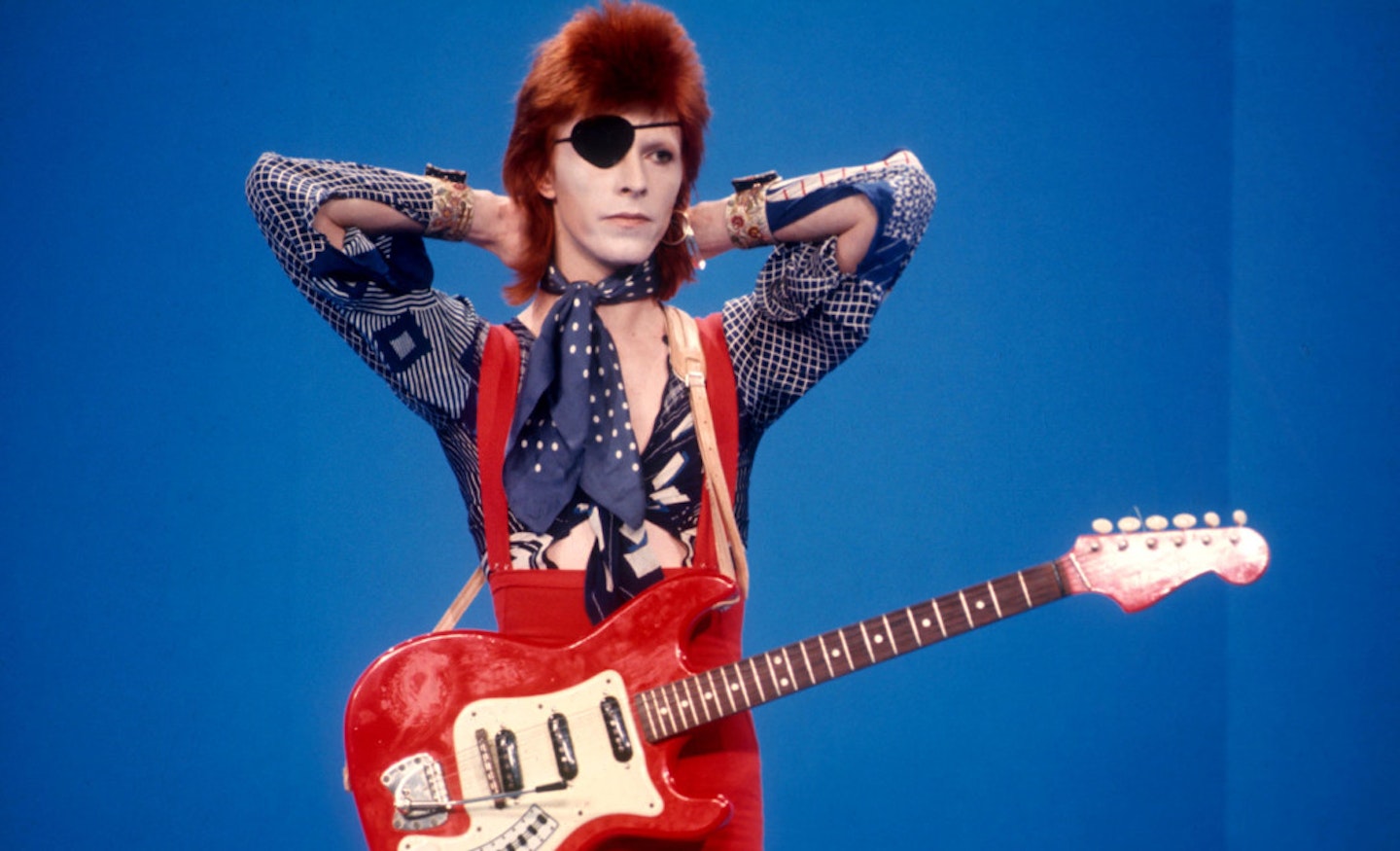
'When I feel low, I ask myself, ‘What would David Bowie do?’ He lived his life on his own terms and a little thing like death won’t stop him from inspiring me and millions of other misfits to do the same. Bowie didn’t make it OK to be different. He made it brilliant. At 17, he appeared on BBC’s Tonight show to discuss the ‘persecution’ of men with long hair. He had no time for pointless taboos and his refusal to conform helped release all of us from rigid gender expectations.
'Looking at photos of Bowie from his glam rock days, I’m struck by how similar he looks to the recent explosion of trans people who identify as genderqueer, and how transgressive that aesthetic still is nearly 50 years later. Bowie was gay, then ‘a bisexual’, then he said coming out as bisexual was ‘the biggest mistake I ever made’. Regardless of what he actually was, to the eye and ear he was undeniably queer – at a time when this definitely wasn’t celebrated.
'Bowie’s refusal to explain or justify himself is what made him so important. As recently as 2013 he was celebrating diversity by inviting gorgeous gender- blenders Tilda Swinton and Andreja Pejic to star in his music video for The Stars (Are Out Tonight).
'Despite all the abuse I got when I first transitioned, it didn’t matter if society thought people like me were freaks – because David Bowie thought we were cool. And he was the coolest creature on the planet. And as statistics reveal that 48% of young trans people in the UK have attempted suicide, the legacy of Bowie’s celebration of gender expression is just as important today as it was in 1964.'
'He creatively controlled everything he did’ says Victoria Broackes who curated the David Bowie exhibition at London’s V&A
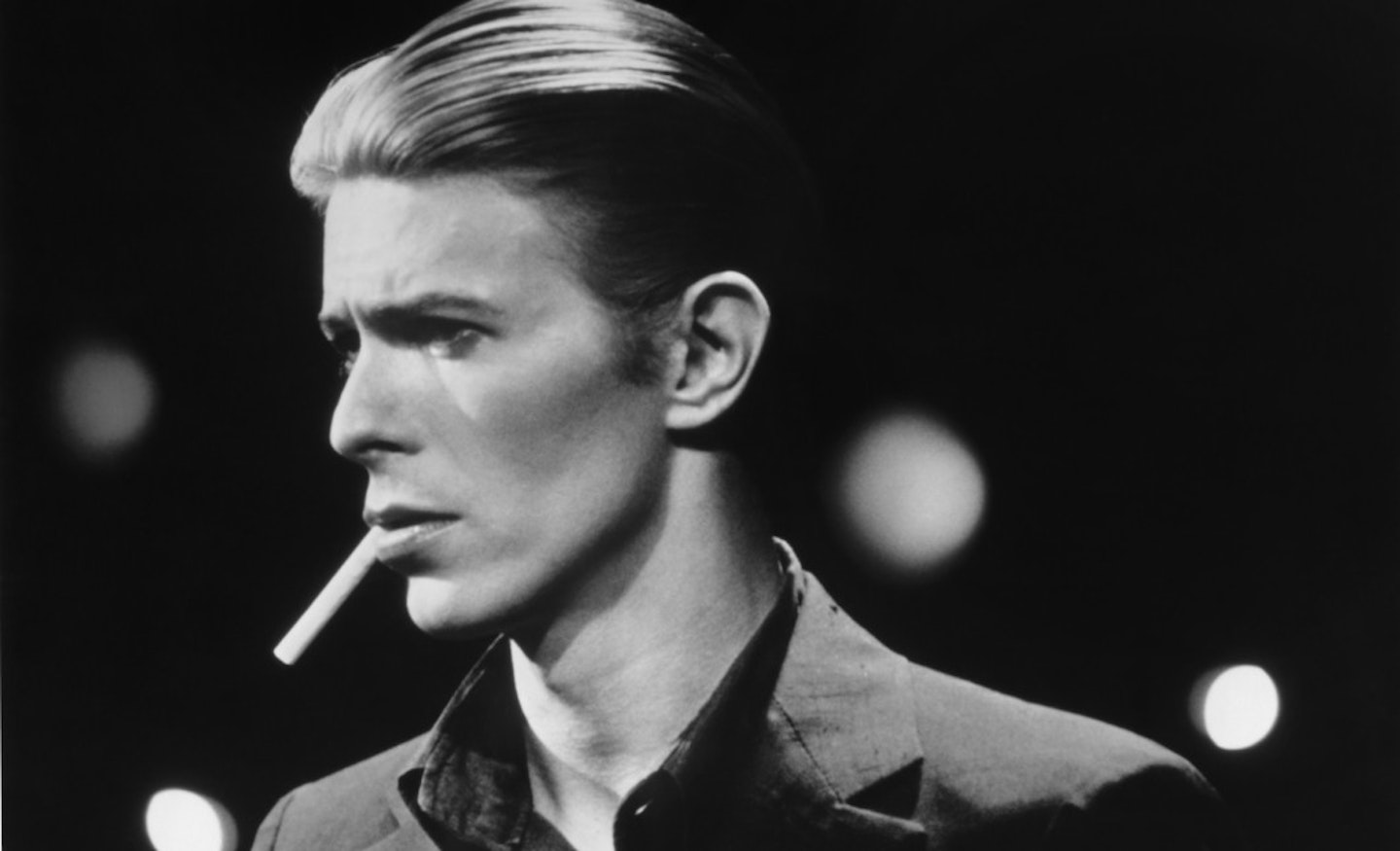
'Having been a fan since I was a teenager, it was extraordinary to work so closely with material relating to Bowie’s life’s work. He was a magpie in terms of his influences – film, theatre of cruelty, German expressionism, mime, musicals, surrealism, Brechtian theatre. He talked about being superficial, that he liked the look of something but wasn’t always going to delve into the philosophy. Yet he could be much deeper: like his interest in Japanese culture. In Kabuki, the male plays both parts, so androgynous and female characters are played by a man. In it, you change your costume to change the mood, scene, or emotion. He used that a lot during his Ziggy and Aladdin Sane period, where he’d rip off part of a Kansai Yamamoto costume to reveal something different underneath.
'Bowie creatively controlled everything he did – music, videos, stage sets, costumes, even the merchandise. Curating the exhibition, we selected 60 costumes from his archive. Other people wearing glam at the time looked like they were dressing up, but Bowie looked like he was living it.Bowie always said he wasn’t very interested in fashion. But he always looked fabulous and had such iconic looks, so his visual legacy has become an inspiration for many fashion designers. Overriding all of that, Bowie just inspires every one of us to be individual and unconventional.'
'His music celebrated misfits’ Polly Dunbar examines Bowie’s musical impact
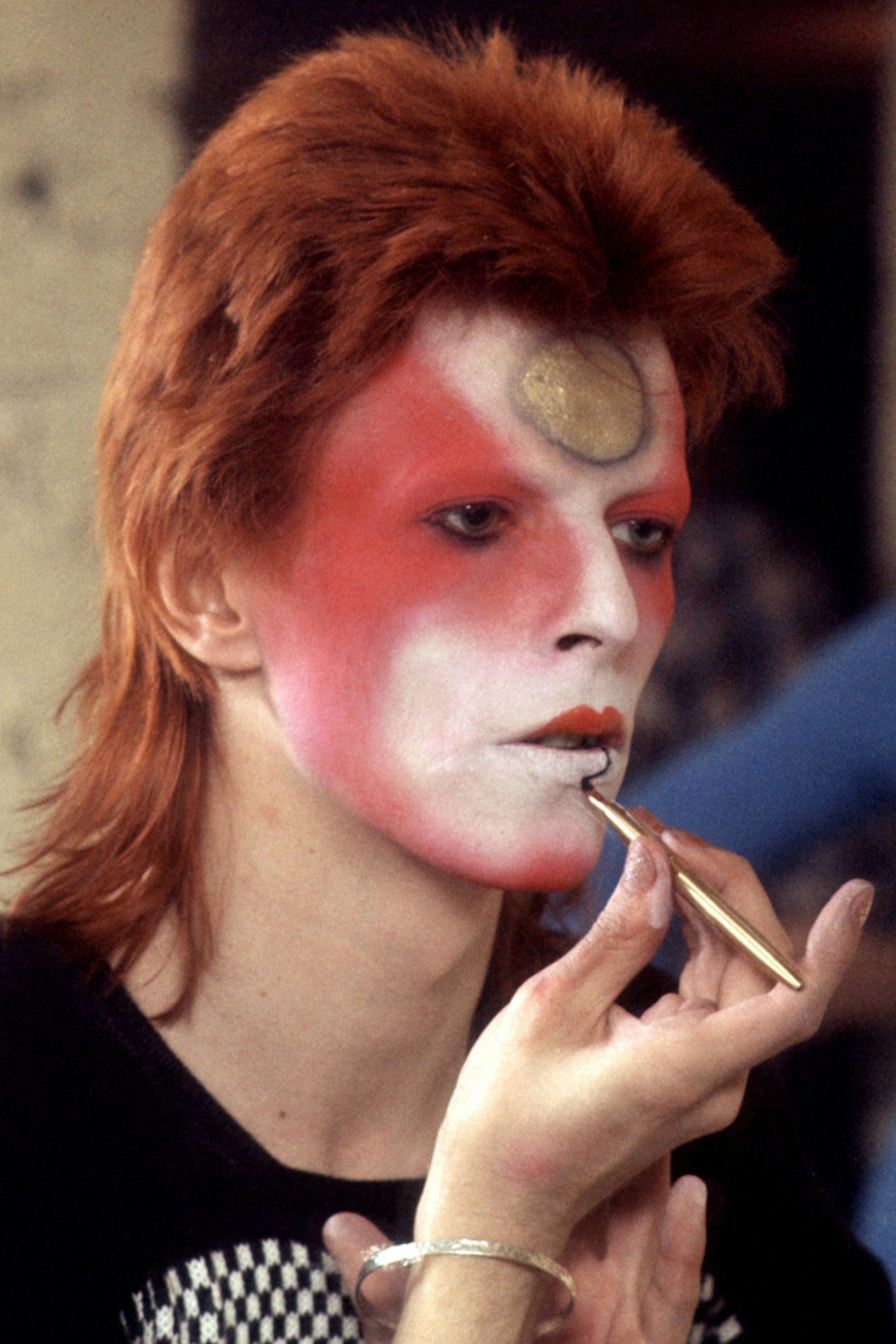
It’s almost impossible for most people of my generationtoremember the first time they heard David Bowie’s music. His songs are so much a part of the cultural landscape that it feels we’ve always known them: theatrical glam rock, sophisticated soul or avant-garde dance-pop, but always, unmistakably, Bowie. Throughout his many incarnations, he looked incredible, yes, but that wouldn’t have been enough to ensure his legacy if his music hadn’t been equally sublime. From the majestic anthem Life On Mars to the insanely catchy Let’s Dance – which has filled the dance floor every time I’ve heard it in a club – it was innovative, sexy, alive. It made us feel things. It still does. As a teenager, I felt reassured by Bowie. He was a misfit, an outsider – possibly an actual alien – and his lyrics celebrated those who felt the same. When he sang lines like Rebel Rebel’s ‘Hot tramp, I love you so’, he held our hand and gave us permission to embrace our differences – different is interesting, and interesting is cool. I made one of my best friends on the first day at university when we discovered we were both Bowie fans. It made us kindred spirits. To say he influenced musicians who’ve come since is a wild understatement. Every singer who’s adopted a provocative persona, written lyrics steeped in grimy glamour or played up their sexual ambiguity owes him a debt. Without Bowie, there would have been no New Romantic era, no Suede, no Lady Gaga.The world of pop would have been a far less colourful, intelligent, enigmatic place. He might be gone, but Bowie’s music sounds as fresh today as when it was written. It was his gift to us, and we'll remain the very lucky recipients.'
'My night with Bowie' Grazia writer Anna Silverman’s mum Nina Biehal organised a concert with the legend as a teen
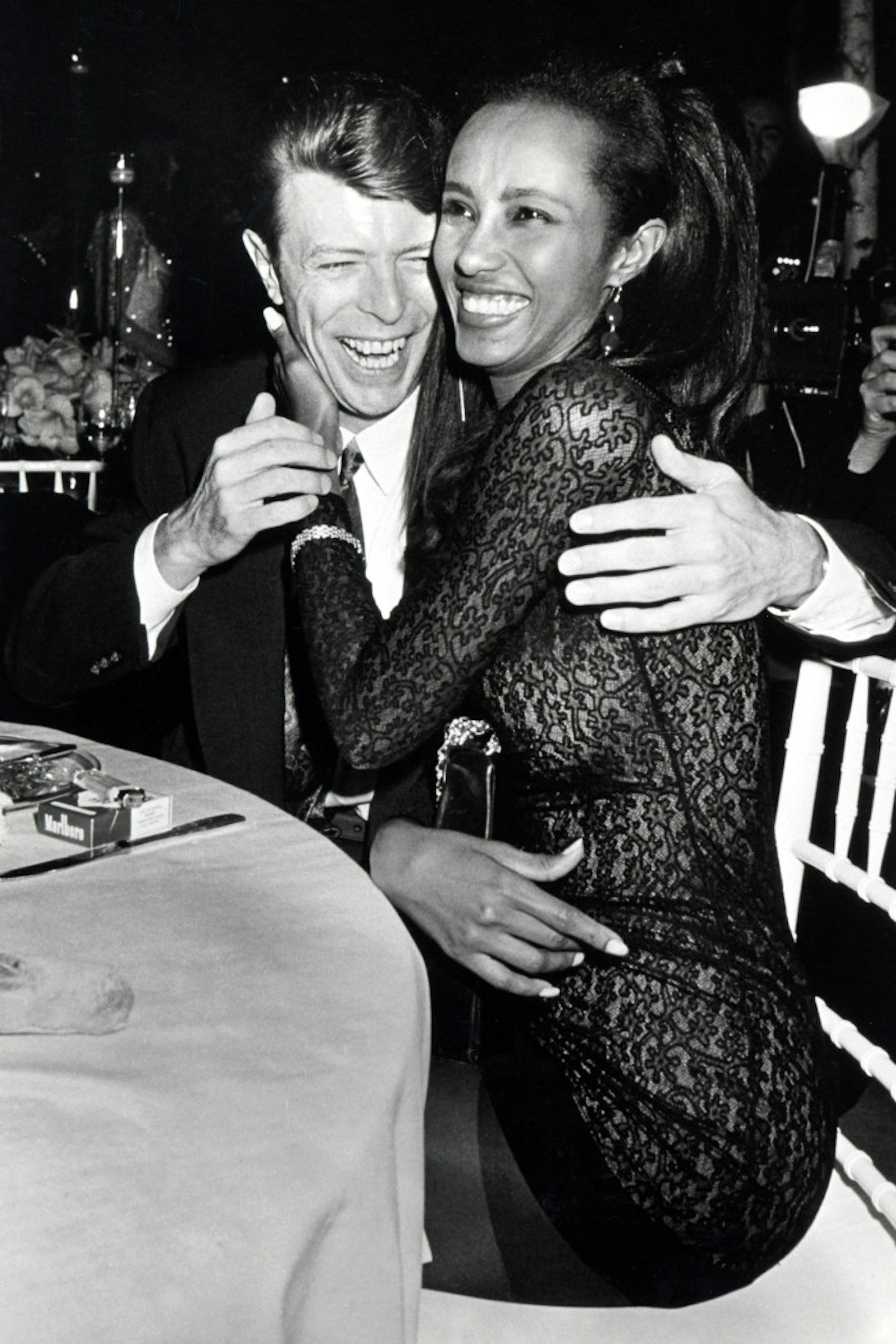
'I’ll never forget the night David Bowie performed at an event I organised. His first hit, Space Oddity, had gone to No.1 that day. It was 1969 and I was one of a few countercultural youths who’d set up an Arts Lab in Croydon in South London. I was still in sixth form and didn’t have a clue what I was doing, but I knew Bowie was leading the Arts Lab in Beckenham where he lived. His number was on a members’ list I had, so I called him up and was delighted when he said he’d perform.
'He wrote explaining how I should set up the event. In his letter he said drugs shouldn’t be allowed inside the venue and that ‘a girl on the door taking money is a lot more attractive than a muscle man. Have the muscle man standing or sitting nearby.’
'When he arrived at the Croydon Gun Tavern, he gave me a hug and a kiss on the cheek, so friendly and down to earth. Funnily enough, after that Bowie gig, none of the events we put on were ever quite as successful...'
